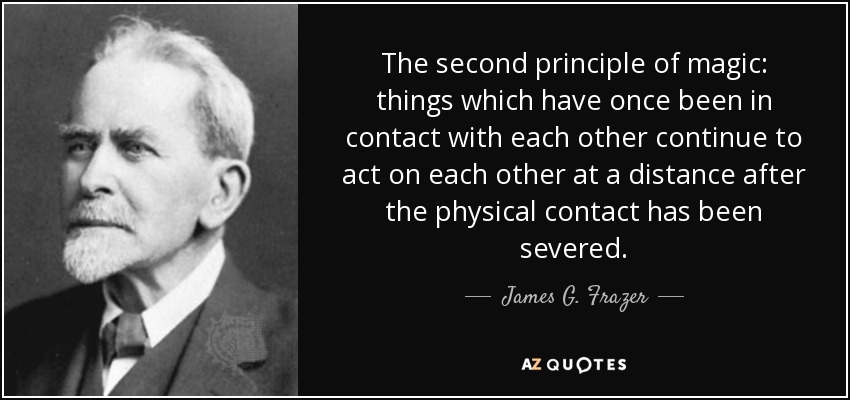
Religion in turn led to science with mathematics replacing numerology, astronomy coming out from astrology and chemistry from alchemy. Religion largely replaced magic as the basis for interpreting how the world arose, how society should function and how we relate to our gods. He believed the idea of resurrection came from the seasonal observation that plants die, scatter seeds and in the spring a resurrection occurs.
#James george frazer professional#
Most professional magicians deny that they possess such gifts, and Houdini spent considerable time duplicating the tricks and illusions other magicians (and charlatans) used to deceive the public.įrazer surmises the earliest humans believed in magical acts and associated them into rituals and myths with a belief in gods, often family ancestors, mythic heroes who were founders of a tribe, clan or larger population and sky gods. With magic, what seems impossible can be made possible, at least to the observers of magical acts. Magic assumes there are supernatural powers that some people can invoke or possess as innate gifts. His book argues that magic gave rise to religion and religion to science. He studied mythology, comparative religion and anthropology.

#James george frazer pdf#
PLEASE NOTE: When you purchase this title, the accompanying PDF will be available in your Audible Library along with the audio.In 1890 Sir James George Frazer (1854-1941) wrote “The Golden Bough.” Frazer was Scottish, educated in Glasgow and then in Cambridge studying classical literature (Greek and Roman). It also contains a reproduction of Turner’s painting The Golden Bough, which set Frazer along his path.
#James george frazer download#
A PDF containing chapter headings is available for download to aid the listener and show the scope of the work. Nevertheless, The Golden Bough remains a remarkable, fascinating and colourful document with its extensive range and detail on human practice.Īndrew Cullum presents this challenging, important work with clarity and sustained interest. But Frazer’s methods and conclusions also drew criticism from later professionals whose detailed field studies produced a more nuanced view on rituals, beliefs and practices. The Golden Bough helped to establish anthropology as a science. Eliot, and Robert Graves, the mythologist Joseph Campbell and the contemporary critic Camille Paglia. G Jung, writers and poets James Joyce, T. The Golden Bough was, and remains, a remarkable achievement for its breadth and detail and proved a huge influence on numerous international figures including psychologists Sigmund Freud and C.

He draws on evidence for these from many different societies - ranging from Babylonian, African, and Jewish to Khazar, European and Mexican. His multifaceted analysis of magic and religion considers topics as various as tree worship, taboo, sacrifice, myths of Adonis and Osiris, the Corn-Mother, the transference of evil, public scapegoats and much else. The more he compared unconnected early societies the more similarities he found - a pattern which suggested the universal existence of basic human tendencies. Further study showed Frazer that this was a familiar pattern in both religion and rule. His starting point was the ‘remarkable rule which regulated the succession to the priesthood of Diana at Aricia’, where the incumbent would remain in position until slain in combat by his successor. In 1922, Frazer produced his own single volume edition which is presented here. It was a study that he continued for many years, with initial volumes appearing in 1890 and growing in size until the 12-volume edition was published in 1915. Its author, Sir James Frazer, surveyed the wide range of cultural habits, taboos and beliefs in communities across the world concluding that there was an observable pattern in the way magic developed into religion, though formal expression emerged in different ways. The Golden Bough, the monumental study of religious rites and practices in ‘primitive’ societies, was one of the earliest influential texts in anthropology.


 0 kommentar(er)
0 kommentar(er)
